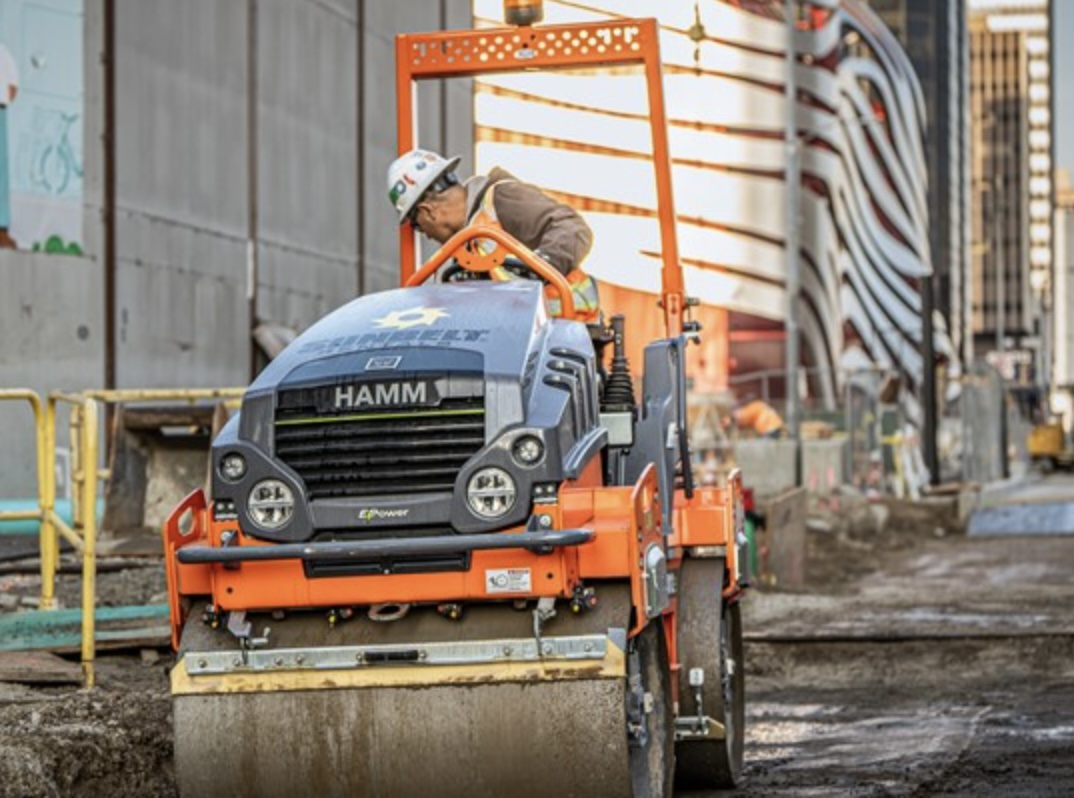Have a story idea
Have a story idea? Send it to us here.

Source : Skanska
March 26, 2024
Author : Patty Allen
Construction giant Skanska is making a major push toward sustainable practices with the rollout of an all-electric asphalt roller. The zero-emission machine, a Wirtgen Group HAMM HD 12e VV, is currently being tested on the $9.5 billion Los Angeles Metro Purple Line Extension project.
Skanska is closely monitoring this pilot program, assessing the roller’s ability to compact subgrade and crushed aggregates. The company is also evaluating its environmental impact and how it’s received by workers on the job site. This emphasis on green construction aligns with the company’s broader environmental goals. Their participation in initiatives like the UN’s Race to Zero previously demonstrated their commitment to reducing their carbon footprint.
This isn’t Skanska’s first foray into electric construction vehicles. In February, they completed a 90-day test of a Volvo EC230 electric excavator, also on the Purple Line project. Skanska says the excavator performed its tasks as required, reduced emissions, cut operating costs, and created a quieter, more comfortable work environment- a win-win for the company and its operators. The program also found that the excavator reduced emissions and lowered costs. The unit used 66% less carbon per hour and saved an estimated $15.15 in operating costs per hour.
The news gets even better for those aiming to make construction less reliant on fossil fuels. LeeBoy, a leading equipment maker, has collaborated with Portable Electric to create a portable fast-charging system for its electric paver. This breakthrough allows crews to recharge on-site in just 15 minutes, adding 21 tons of asphalt laying capacity. Looking ahead, plans are in the works for even faster Level 3 charging that could triple that amount. This technological advancement has the potential to significantly streamline operations and boost efficiency on paving projects.
While electric cars have been around for a while, electric construction equipment adoption is still relatively new. However, it’s incredibly important. The construction industry is a major contributor to global pollution and carbon dioxide emissions, responsible for roughly 37% of energy-related CO2, according to the UN. Traditional gas-powered machines also pose health risks from carbon monoxide and noise pollution. Beyond the environmental impact, the health and safety of construction workers is an undeniable concern for responsible companies.
Companies like Skanska, LeeBoy, and Portable Electric are tackling this problem head-on. Portable Electric, founded in 2015, aims to revolutionize construction through clean energy equipment. Skanska’s trials and LeeBoy’s charging partnership signal a major turning point in the sector, promising:
In 2022, the government identified 5 tech trends in public works that can effectively reduce redundancy and wasted resources. The initiatives by Skanska and others are furthering the government’s goal, one step at a time.
While the transition to electric equipment is ongoing, these innovations show a clear path toward a more sustainable construction industry. Companies like Skanska are demonstrating that building roads, bridges, and vital infrastructure can be done with a smaller environmental footprint.
Category : Market Watch Tech
